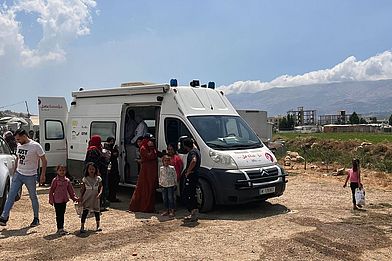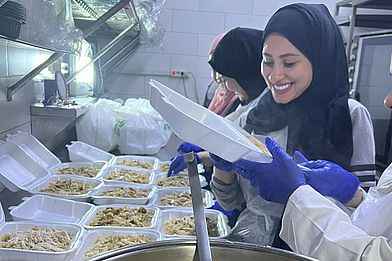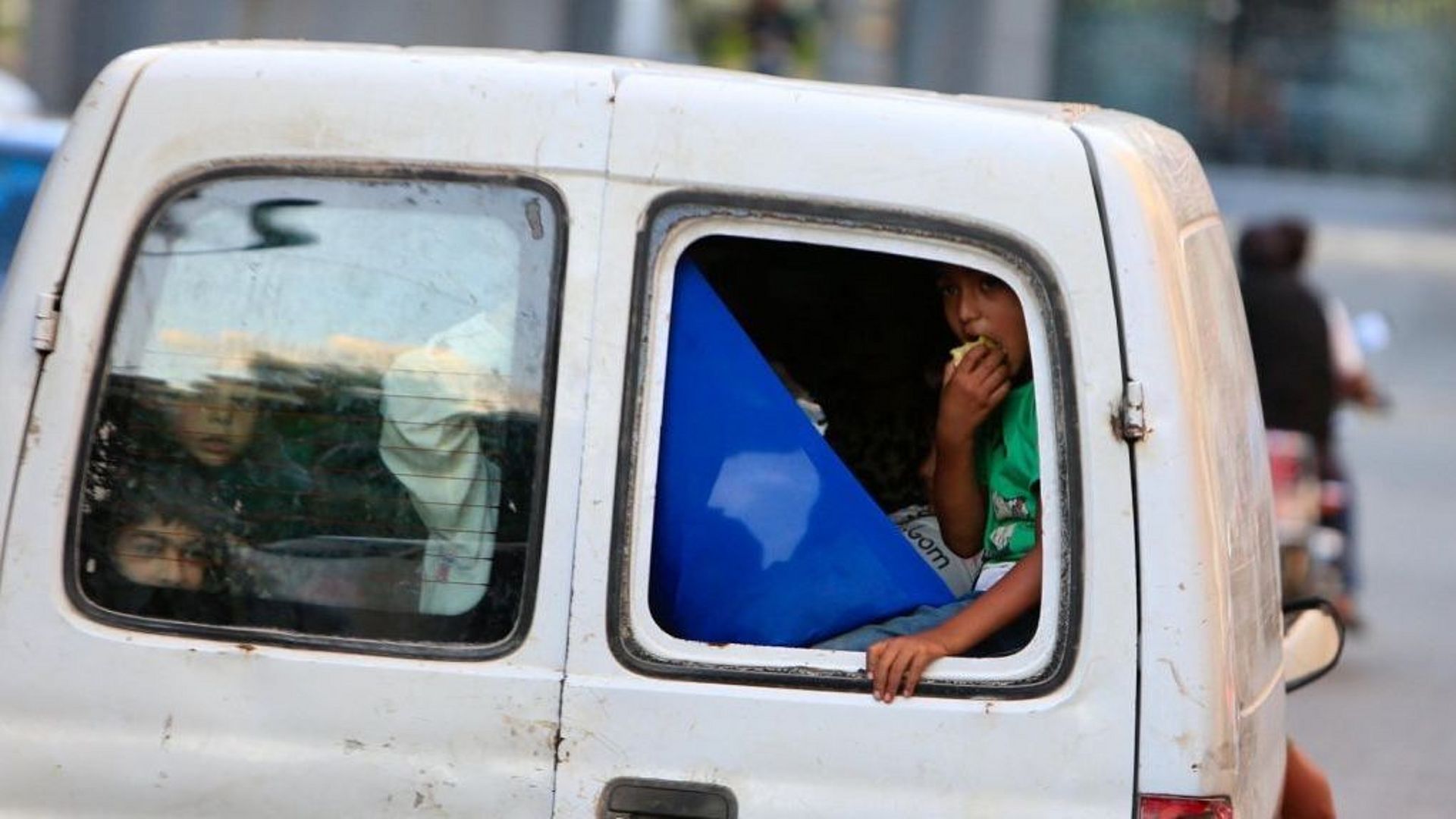The war is escalating. Millions are fleeing from the bombs. medico supports partner organizations in caring for the refugees.
Donate now!
In his opening speech to the UN General Assembly in New York in September, Secretary-General Antonio Guterres warned the international community that Lebanon must not become ‘another Gaza’. At the end of October, images from the country are a drastic reminder that the Secretary-General was right in his warning: Over 130 towns and villages are restricted military areas and are subject to Israeli evacuation orders. Many villages in the south of the country lie in ruins, bombed by the Israeli army in order to establish a military exclusion zone. Hundreds of thousands of people have been camping out on beaches and in parks for weeks in the most basic conditions. Even before, they could barely afford their daily bread. Now they are dependent on aid. Another 400,000 people have even fled to Syria and Rojava to escape the hail of bombs. The Israeli offensive, which once began as a ‘limited operation’, has long since spread to the entire country.
With the ground offensive, the heaviest air strikes in decades in the southern districts of Beirut and other cities, the killing of Hezbollah leader Nasrallah, what had previously been foreshadowed is now confirmed: the Israeli government has decided in favour of an enormous escalation of violence, putting almost the entire population of Lebanon in a state of war. Meanwhile, the Hezbollah rocket attacks against Israel continue. 60,000 people from northern Israel are still unable to return to their homes. Targets in Haifa and Tel Aviv were attacked for the first time.
The war is hitting the people of Lebanon at a time of serious political and economic crisis. Around half of the population lives in poverty, hundreds of thousands of Syrians are living in the country as refugees and the healthcare infrastructure has long since reached its limits. The longer the war lasts, the more difficult it becomes to care for the injured and internally displaced people in Lebanon, as many things are lacking. If they have no private contacts, people are currently sleeping in schools that have been converted into emergency shelters provided by the government. The children are threatened with a lost school year. Normal life has largely come to a standstill.
Our partner organisations Nashet and Amel are providing emergency aid with great personal commitment. A regular daily routine is no longer possible for many employees. The mobile clinics and health centres in the Bekaa Valley and in the south of the country are often the only ones that can help people at high risk. They offer refugees medical assistance and psychosocial support because the state is overwhelmed by the need. However, Amel is also paying a high price for its efforts: three of its health centres have had to be temporarily closed in recent weeks due to heavy damage caused by bombing and its staff have had to be evacuated. But they carry on.
medico is now providing emergency aid. We request your solidarity in the form of a donation for the people in Lebanon.
medico partner organizations are active
Perpetually in action

Employees of the Amel health organisation are currently treating injured people and refugees. They operate health centres throughout the country, including in southern Lebanon, and have six mobile clinics, where they offer basic healthcare for everyone.
Emergency aid for refugees

The Palestinian NGO Nashet helps refugees from southern Lebanon in Saida, distributing food and blankets to new arrivals, including Lebanese, Palestinians and Syrian refugees who had previously found refuge in the south and are now looking for a new safe haven.
Become a supporting member
Our involvement in the global struggle for change is made possible by a large number of supporters. To ensure the independence and sustainability of our work, free donations, therefore donations un-tied to a specific purpose, and supporting memberships are particularly important. You can support the work of medico and our partners in many ways: As a supporting member, with your donation or your commitment to share our work.


